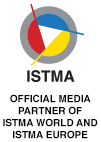Swiss Steel Group pursues green transformation
20.06.2022
The Swiss Steel Group has signed the SBTI Commitment, which aims at limiting global warming to 1.5°C. To this end, the group is implementing decarbonization measures until net zero is reached.
 As part of their decarbonization strategy, the Swiss Steel Group has had the carbon levels in production at its Swiss plant Steeltec and its subsidiaries in Germany and Turkey verified. (Source: Public Domain / Pixabay )
As part of their decarbonization strategy, the Swiss Steel Group has had the carbon levels in production at its Swiss plant Steeltec and its subsidiaries in Germany and Turkey verified. (Source: Public Domain / Pixabay )
At the 21st World Climate Summit (COP 21) in 2015, the legally binding Paris Climate Agreement was adopted with the aim of limiting global warming to maximum 1.5°C. This will only succeed, however, if industry is brought on board. The initiative is supported by SBTI (Science Based Targets Initiative), a partnership of the Carbon Disclosure Project (CDP), UN Global Compact, the World Resources Institute (WRI) and the World Wide Fund for Nature (WWF). The initiative’s aim is to establish science-based targets (SBTs) to reduce greenhouse gas emissions as a standard of corporate practice.
Frank Koch, the CEO of the Swiss Steel Group, has now also signed the SBTI Commitment. In taking this step, the Group and all its sites are committed to adopting decarbonization measures and to reducing emissions by 2050 in keeping with world climate targets. The Swiss Steel Group now has two years to have their decarbonization targets validated by SBTI and then implement them.
“We are determined to continue to improve our leadership in Green Steel produced with fewer emissions until we reach net zero,” confirms Frank Koch. In this endeavor, the Group has different starting conditions. The carbon footprint of the Swiss site, for example, is already 90 % lower today than any of the worldwide industry average. “At other sites, we still need more support at the political level, for example, to be able to make decarbonized energy available in sufficient quantities.”
In the meantime, 3,000 companies worldwide have committed to SBTI to meet the set climate targets. The Swiss Steel Group with 100 % of their production based on electric arc furnaces is well on its way to meeting these requirements.
Conformity certificate by TÜV Süd
As part of their decarbonization strategy, the Swiss Steel Group has had the carbon levels in production at its Swiss plant Steeltec and its subsidiaries in Germany and Turkey verified. The focus of the baseline reference assessment was the entire production process from the steel melt to bright steel production at the Steeltec plants.
Tailored to the specific needs of every manufacturer, TÜV Süd’s Veristeel procedure maps all relevant processes and material flows to validate the CO2 emissions of the production process. This complex approach to recording CO2 emissions creates a transparent baseline both for individual activities as well as for the entire decarbonization process. The Veristeel procedure is based on ISO/IEC 17029 and relevant international standards for reporting greenhouse gas emissions (such as ISO14064 and 14067, etc.). As part of the Veristeel procedure, Steeltec has now successfully prepared the baseline reference assessment and is thus laying a relevant foundation for further decarbonization steps.
While the industry average amount of CO2 released per tonne of crude steel produced in the blast furnace process is around two tonnes, the amount at Steeltec’s mill is just about 63 kg (Scope 1 and 2), respectively 260 kg (Scopes 1, 2 and 3 Upstream). Even when the entire production process is considered, Steeltec’s emission levels are clearly below those of the worldwide industry average.
Source: www.etmm-online.com













































